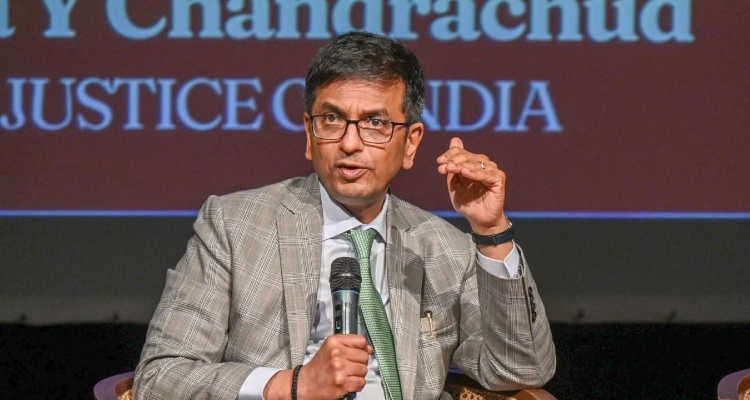
Chief Justice of India CJI DY Chandrachud has recently emphasized the crucial role of institutional trust in courts during his address at the Bhutan Distinguished Speakers’ Forum.
Speaking on “Judicial Legitimacy through Accessibility, Transparency, and Technology: The Indian Experience,” he underscored that the credibility of the judicial system is fundamental to a thriving constitutional order.
CJI Chandrachud highlighted the responsibility of courts as public functionaries to ensure equitable justice, stating that while courts do not directly manage resources, they must adjudicate the fairness of their distribution when challenged.
He remarked, “Institutional trust in constitutional and other courts is essential for maintaining a robust constitutional framework.”
The Chief Justice noted that public trust is vital to the credibility of the judiciary, which operates independently of public opinion. “The Indian Supreme Court prides itself on being the people’s court,” he added, explaining that the judiciary has often scrutinized the fairness of resource distribution and contracts managed by other government branches.
Judges must operate free from popular morality when addressing constitutional or legal issues, Chandrachud said. “At all levels, judges are expected to apply the law impartially, regardless of the popularity of their decisions. Populist decision-making undermines judicial independence.”
The CJI also discussed the significance of Public Interest Litigation in India, describing it as a unique feature of the nation’s constitutional framework that has influenced other jurisdictions. He pointed out that technology has been pivotal in enhancing accessibility to the courts.
“Our e-courts project, initiated in 2007, aims to boost judicial efficiency. We now offer e-filing options, leading to a significant reduction in physical filings,” he explained. The introduction of hybrid hearings during the COVID-19 pandemic has also transformed court proceedings, making it easier for individuals from remote areas, as well as those with disabilities or health concerns, to participate.
While acknowledging that technology cannot resolve all social inequalities, CJI Chandrachud stressed the importance of embracing tech-enabled initiatives to promote judicial accountability and accessibility.




